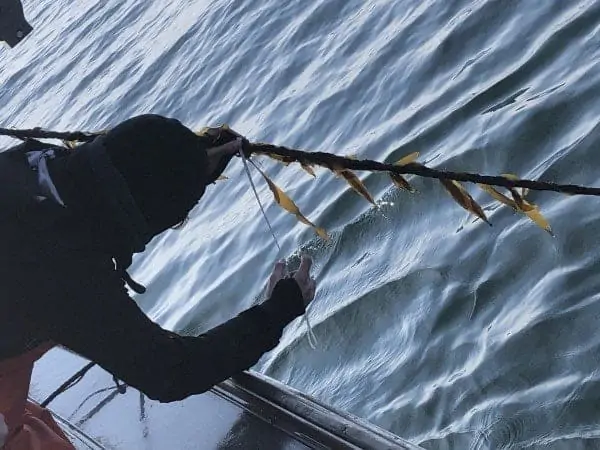The demand for carbon offsets will increase in the coming years. Companies try to buy credits to meet their climate and sustainability goals, offsetting emissions they can't reduce on their own.
To seize this business opportunity, a startup is growing large quantities of algae (to extract CO2 from the atmosphere) to settle on the ocean floor, capture carbon for millennia, and sell the carbon offsets.
When Adam Baske he was a boy he wanted to become a fisherman: he lived on the shores of Lake Michigan, and sea bass and carp were everyday stuff. Today, decades later, Baske is CEO of Running Tide, a company that has just entered the carbon offsets market.

Researchers are exploring innovative ways to sequester more and more carbon, with ideas like genetically modified trees, or industrial scrubbers. If they seem futuristic or unlikely solutions, that of algae appears much more sustainable.
At the attack of global pollution
Tropical forests are considered a defense against climate change due to their ability to remove carbon dioxide from the atmosphere. But as deforestation and fires destroy forests, releasing carbon into the atmosphere, researchers are looking for more forests to grow elsewhere: kelp forests. These underwater jungles are very efficient at storing carbon.
Like trees, algae take carbon dioxide from the atmosphere and store it in their tissues during photosynthesis. Colette Feehan, a marine ecologist at Montclair State University, says the productivity of kelp forests is comparable to that of tropical rainforests. The plant needs above-ground sunlight to grow and absorb carbon. But once it reaches deep water, where the environment limits decomposition, the carbon remains buried for hundreds, or thousands, of years.
Algae grow fast, but to know how much carbon they sequester, and what their fate is when they are consumed, we need more research.

An active and promising research area
When algae are consumed (by fish or microbes), carbon is released into the atmosphere through the respiration of those consumers. If algae are not consumed, however, they sequester carbon for millennia. This is why understanding how much algae remains and how much is consumed (indirectly releasing carbon) is an area of active research.
Research begins to show that Large-scale algae farming can play an essential role in offsetting carbon emissions. From one studio transposed to our country it makes us understand that algae farming in 5,3% of Italian waters could offset carbon emissions from the agricultural industry for 40 billion euros.
One weakness: no one knows how. Algae grow near the coast. But while shallow water is great for growing them, algae need deep water to sequester carbon.
Adam Baske says his startup, Running Tide Technologies, believes it has it figured out.
Mini offshore algae farms to grow carbon offsets

Baske's solution is to grow algae in mini-farms attached to biodegradable floats drifting in the deep ocean.
As the algae grows, the floats keep them close to the surface, capturing essential sunlight. Once the seaweed reaches a critical length and weight (after about six months), the carbon-laden fronds are too heavy for the buoy and the entire mini-farm sinks to the seabed. Carbon sequestered.
The project is still in the research and development stages. The startup put around 1600 buoys into the water, fixed with sensors and trackers, and is testing the amount of carbon stored, safety for ships and marine mammals, and more. In the future, says Baske, the hope is to have millions of micro-farms, which absorb billions of tons of carbon.

Algae can help us get to "net zero"
In recent years, the growing effects of climate change (fires, droughts, floods, etc.) are placing increasing pressure on cities, towns and companies to reach “net zero”. It is an overall balance between the amount of emissions produced and the emissions taken out of the atmosphere.
The future of these methods lies precisely in the carbon offsets market. Large companies, cities and even entire states are trying to reduce emissions, but also to offset them. Among the first companies to buy offsets from Baske's startup is Shopify, the popular ecommerce company.



